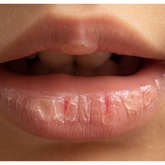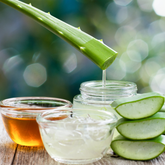
Moisture Matters Most: How to Keep Your Skin Hydrated During the Changing Seasons
Moisture Matters Most: How to Keep Your Skin Hydrated During the Changing Seasons
The changing seasons can wreak havoc on your skin, leaving it dry, irritated, and in need of extra care. From the biting cold of winter to the scorching heat of summer, our skin faces a variety of environmental challenges that can lead to dehydration, flakiness, and even damage if left unchecked. For families, this means everyone—children, adults, and even grandparents—needs a consistent, year-round skincare routine to keep their skin healthy, smooth, and hydrated.
At the heart of a healthy skincare regimen is one key principle: moisture matters most. Keeping skin hydrated through all seasons ensures its natural barrier remains intact, protecting it from external stressors and preventing dryness. In this article, we’ll explore how plant-based moisturizers can help families maintain healthy skin throughout the year, providing much-needed hydration and protection no matter what the weather brings.
Winter Woes: Hydration During Colder Months
Winter can be particularly harsh on the skin. As temperatures drop and indoor heating rises, the air becomes drier, stripping moisture from your skin. This leads to common winter skin issues such as dryness, flakiness, and irritation. For families, these concerns are compounded by the fact that children and older adults tend to have more sensitive skin, making them especially vulnerable to winter’s effects.
Why does skin become so dry in winter? The combination of cold air, low humidity, and hot indoor environments saps moisture from the skin, weakening its natural barrier. Without adequate hydration, the skin becomes prone to cracking, irritation, and inflammation.
How to Keep Skin Hydrated in Winter:
-
Apply Moisturizer Immediately After Bathing: After showering or bathing, the skin is more receptive to moisture. Applying a plant-based moisturizer while the skin is still damp helps lock in hydration and reinforce the skin’s protective barrier.
-
Choose Rich, Plant-Based Ingredients: In winter, opt for plant oils and butters that provide deep hydration. Ingredients like shea butter, cocoa butter, and jojoba oil are excellent for creating a moisture barrier that prevents water loss. These natural ingredients are also gentle, making them ideal for children and adults with sensitive skin.
-
Hydrate from the Inside Out: It’s easy to forget to drink enough water in the colder months, but staying hydrated internally is just as important as moisturizing externally. Encourage family members to drink plenty of water throughout the day to maintain skin hydration from within.
Summer Skin: Combating Sun Damage and Dehydration
Summer presents a different set of challenges. The heat, humidity, and increased exposure to the sun can lead to dehydration, sunburn, and long-term damage like premature aging and hyperpigmentation. It’s essential to not only hydrate the skin but also protect it from harmful UV rays and heat-induced moisture loss.
How to Combat Sun Damage and Dehydration in Summer:
-
Moisturize Daily with Lightweight, Plant-Based Products: In the summer, you’ll want to use a lighter moisturizer that doesn’t feel heavy or greasy but still provides adequate hydration. Ingredients like aloe vera and cucumber extract are refreshing and cooling while also helping to soothe sun-exposed skin.
-
Protect with Natural Sunscreen: Preventing sun damage is key to maintaining healthy skin. Choose a mineral-based sunscreen with zinc oxide or titanium dioxide, which offers broad-spectrum protection without the use of harsh chemicals. Apply sunscreen generously and reapply throughout the day, especially after swimming or sweating.
-
Soothe Sun-Exposed Skin: If your skin has been overexposed to the sun, it’s important to soothe and hydrate it as soon as possible. Aloe vera is well-known for its cooling and healing properties, making it an excellent after-sun treatment. For additional moisture, follow up with a plant-based lotion or cream containing calendula or chamomile to calm any inflammation or irritation.
The Role of Plant Oils and Butters in Forming a Protective Barrier
One of the most important functions of moisturizers is to form a protective barrier on the skin, locking in moisture and shielding it from environmental stressors. Plant-based moisturizers are particularly effective in this regard because they use natural oils and butters that mimic the skin’s own lipid barrier, providing hydration without clogging pores.
Why Plant Oils and Butters Work So Well:
-
Shea Butter and Cocoa Butter: These rich butters are packed with essential fatty acids and vitamins that help strengthen the skin’s barrier and provide long-lasting moisture. They’re especially beneficial in the colder months when skin needs extra protection from the elements.
-
Jojoba Oil: Jojoba oil is unique because it closely resembles the skin’s natural oils (sebum). This makes it an ideal moisturizer for all skin types, as it balances moisture levels without causing irritation or breakouts. Jojoba oil also forms a breathable barrier on the skin, protecting it from dryness while allowing it to function normally.
-
Coconut Oil: Another excellent plant-based option, coconut oil has antimicrobial properties and is incredibly hydrating. It’s a great ingredient for dry patches and can be used on both the body and face to provide extra moisture and protection.
By using plant oils and butters, you’re not only keeping your family’s skin hydrated but also protecting it from the effects of harsh environmental conditions, whether it’s the cold winds of winter or the intense sun of summer.
Practical Tips for Applying Moisturizer Year-Round
Maintaining a consistent moisturizing routine is essential for healthy skin. Here are a few practical tips to ensure you’re getting the most out of your plant-based moisturizers, no matter the season:
-
Timing Matters: Always apply moisturizer after bathing or washing your face, when the skin is still slightly damp. This helps lock in moisture and ensures better absorption of the product.
-
Use Enough Product: Don’t skimp on moisturizer, especially during the winter months. Apply a generous amount to areas prone to dryness, such as hands, elbows, and knees.
-
Customize for the Season: In winter, opt for richer, thicker creams and butters that offer more protection against the elements. In summer, switch to lighter lotions or gels that hydrate without feeling heavy or greasy.
-
Involve the Whole Family: Make moisturizing a part of your family’s daily routine. Encourage children to apply moisturizer after bath time and remind everyone to rehydrate after sun exposure or swimming in the summer.
Consider This: Moisture Matters Most, Year-Round
No matter the season, keeping your skin hydrated is essential to maintaining its health and appearance. By using plant-based moisturizers that lock in moisture and protect the skin’s natural barrier, families can enjoy smoother, healthier skin all year long. Whether you’re battling the dryness of winter or the dehydration of summer, remember that moisture matters most for everyone in the household. With a consistent skincare routine, your family can stay comfortable, hydrated, and protected, regardless of the weather.





